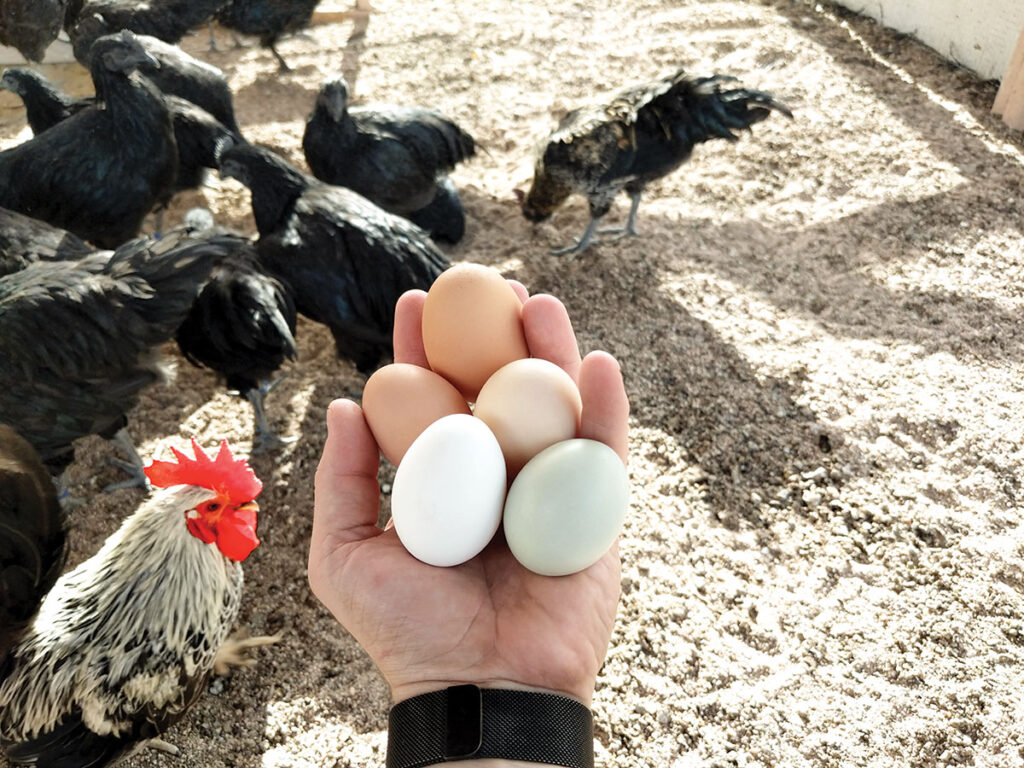
Improving the quality of eggs produced in a small-scale poultry operation
Raising hens for egg production in backyards is an agricultural practice that has been on the rise and the importance of proper nutrition and flock management is imperative to quality egg production.
The first step in developing a good egg-laying flock is to ensure that they have a balanced diet. This is a crucial factor for the hen’s entire life cycle. When a bird receives the proper nutrition in the early stages of life, they are more likely to grow into productive egg-layers.
“The diets of egg layers are incredibly important as each egg she lays requires a large amount of nutrients from both her diet and even from her body,” Sara Orlowski, an associate professor of poultry science at the University of Arkansas, explained.
When discussing diet, one of the most important components is protein. Orlowski said their feed should consist of approximately 15 to 18 percent protein and should have a higher amount of calcium than traditional chicken feed. The calcium in a hen’s diet is used to develop the eggshell, making it a crucial element in egg production.
Stepping away from diet, it is also important to look at the quality of the shelter given to the flock. This shelter protects them from potential predators and the weather. According to Orlowski, both nest boxes and roosts may be necessary in the coop. The correct amount of light within the shelter is another factor that impacts egg production.
“Going into the fall months, as days are getting shorter, if a hen is not given artificial light in her coop, her body will stop laying and enter into a molt,” Orlowski said.
The importance of good biosecurity practice in a small-scale operation is essential to keeping the flock healthy. Prioritizing the health and safety of the birds will ensure the quality of the eggs received from the flock. Orlowski emphasized this by listing off a few biosecurity practices.
Producers should be cleaning and disinfecting feeders regularly. Orlowski also said quarantining new birds, separating the flock from wild birds, and showering after exposure to birds that are not your own will prevent any diseases from infecting your flock. It is also important to deal with mortalities within the flock correctly by determining the cause of death or contacting a local veterinarian.
For beginners or anyone interested in egg-laying production, it is important to ask questions and be well-informed. This can be done by reaching out to the local county extension office or people with experience in the industry.






